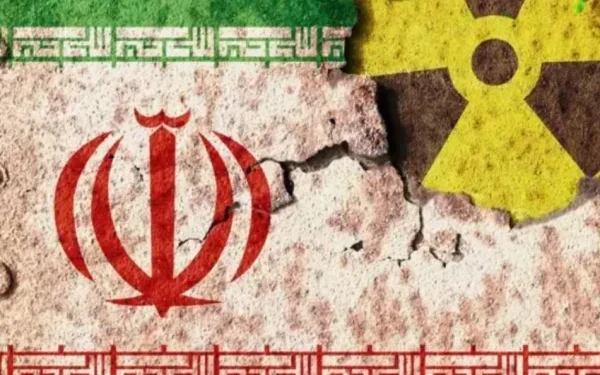Introduction: Contradictory Claims on Iran’s Nuclear Setback
A newly released report by the U.S. Department of Defense (Pentagon) has revealed that the recent American airstrikes on Iranian nuclear facilities have only delayed Iran’s nuclear program by one to two years, a revelation that starkly contradicts President Donald Trump’s earlier claims that the program was halted for “several decades.”
These statements, made in a Pentagon press briefing by spokesperson Sean Parnell, provide a more measured and sobering assessment of the actual impact of the air raids, suggesting that while some progress was hindered, Iran’s nuclear ambitions remain largely intact.
Background: The U.S.-Iran Nuclear Standoff
Iran’s nuclear program has long been a point of tension between Tehran and Washington. The 2015 Joint Comprehensive Plan of Action (JCPOA), signed between Iran and world powers, initially curtailed Iran’s ability to enrich uranium. However, after President Trump withdrew the U.S. from the JCPOA in 2018 and reimposed sanctions on Iran, Tehran began ramping up its nuclear activities again.
Concerns have grown among Western nations about Iran’s ability to enrich uranium to weapons-grade levels. These fears led to increased surveillance and diplomatic efforts, which ultimately failed to stop Iran’s advancements.
Details of the U.S. Airstrikes
On June 22, the U.S. launched coordinated airstrikes on three key Iranian nuclear facilities using B-2 stealth bombers and over 20 Tomahawk cruise missiles. The attack targeted heavily fortified underground installations with bunker-buster bombs designed to penetrate reinforced concrete.
Pentagon officials claim the strikes inflicted heavy damage, destroying key infrastructure within the sites. Spokesman Sean Parnell stated, “According to our intelligence, many of Iran’s facilities have been completely destroyed.”
Impact Assessment: A Delay, Not a Destruction
Despite initial optimism, follow-up intelligence reports have shown that the damage, while significant, did not entirely cripple Iran’s nuclear program. The Pentagon now estimates that the strikes have set back Iran’s nuclear capabilities by only 12 to 24 months.
This directly challenges President Trump’s bold assertion that the program has been neutralized for “decades.” While Trump remains publicly committed to this claim, experts within the defense and intelligence community caution against such optimistic projections.
No Evidence of Uranium Relocation
One of the key factors that limited the effectiveness of the strikes, according to U.S. Defense Secretary Pat Hegseth, is that Iran had not relocated any enriched uranium prior to the attacks. “There is no indication at this time that Iran had moved any of its enriched uranium stockpiles,” Hegseth said.
This means that while physical infrastructure may have been damaged, a significant portion of Iran’s nuclear assets likely remains secure and potentially recoverable.
Intelligence and Strategic Analysis
According to military analysts, while the airstrikes were tactically successful, they do not provide a long-term solution to the Iranian nuclear issue. Iran has historically demonstrated resilience and resourcefulness in rebuilding its nuclear infrastructure.
Analysts argue that such operations, unless paired with sustained diplomatic and strategic pressure, may only serve as temporary setbacks. “Iran has the technical know-how, the resources, and the determination to restore its capabilities,” said an unnamed senior intelligence official.
Iran’s Response and Regional Implications
While Iran has not officially disclosed the extent of the damage, state media described the attacks as “cowardly acts of aggression.” The Iranian Revolutionary Guard has vowed retaliation, raising fears of a wider regional conflict, especially involving U.S. allies like Israel and Saudi Arabia.
The attacks have also fueled anti-American sentiment across the Middle East and raised questions about the legality and long-term strategic wisdom of preemptive military strikes without international consensus.
Global Reactions: Allies and Critics Respond
Reactions from U.S. allies have been mixed. While some European nations expressed relief that Iran’s progress was slowed, others cautioned that the strike could lead to escalation and undermine efforts to resume nuclear negotiations.
Russia and China, both vocal critics of American military interventions, condemned the strikes and called for a renewed commitment to diplomacy. The United Nations has yet to issue a formal response.
Conclusion: Temporary Pause or Strategic Shift?
The Pentagon’s latest report adds a layer of realism to the discourse surrounding Iran’s nuclear ambitions. While the U.S. airstrikes have undeniably delayed some aspects of Iran’s nuclear development, they have fallen short of delivering the decisive blow claimed by President Trump.
This episode underscores the complexity of dealing with nuclear proliferation and highlights the limitations of military options in achieving long-term non-proliferation goals. As tensions remain high, the international community is left grappling with how to engage Iran moving forward: through continued pressure, renewed diplomacy, or a blend of both.
The coming months will likely determine whether this setback becomes a turning point or simply another chapter in the long and volatile U.S.-Iran nuclear saga.

























